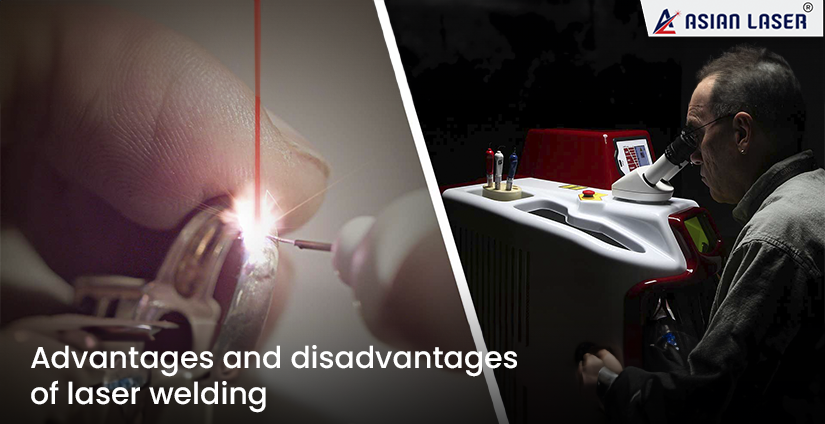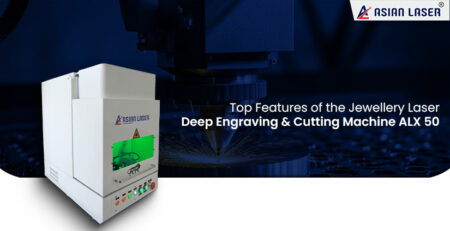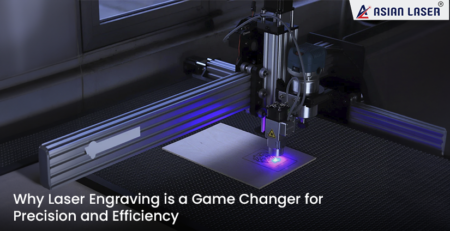Advantages and Disadvantages of Laser Welding
Laser welding has revolutionized various industries, offering precision and efficiency unmatched by traditional welding methods.
How Does Laser Welding Work?
This advanced technique utilizes a highly focused beam of laser energy to melt and join materials together. While offering numerous benefits, it’s essential to understand both the advantages of laser welding and its potential drawbacks.
Advantages of Laser Welding:
- High Precision: Laser beams can be precisely controlled, allowing for highly accurate welds with minimal heat-affected zones (HAZ). This is crucial for delicate components and intricate designs, making laser welding ideal for applications in industries like electronics, aerospace, jewellery and medical devices.
- Fast Processing Speeds: Laser welding can significantly reduce processing time compared to traditional methods like TIG or MIG welding. The focused energy allows for rapid melting and solidification, increasing productivity and reducing manufacturing costs.
- Minimal Distortion: The localized heating of laser welding minimizes thermal distortion, ensuring that the welded parts maintain their original shape and dimensions. This is particularly important for applications where dimensional accuracy is critical.
- Deep Penetration: Laser welding can achieve deep penetration with minimal surface interaction. This makes it suitable for welding thick materials and joining dissimilar metals.
- Automation Potential: Laser welding processes can be easily automated, increasing production efficiency and reducing labor costs. This is particularly beneficial for high-volume production applications.
- Versatility: Laser welding can be applied to a wide range of materials, including metals, plastics, and ceramics.
Disadvantages of Laser Welding:
- High Initial Investment: Laser welding machines require a significant initial investment. However, the long-term cost-effectiveness can outweigh the initial expense due to increased productivity and reduced labor costs.
- Safety Concerns: Laser radiation can be hazardous to human eyes and skin. Proper safety precautions, including the use of protective eyewear and shielding, are essential while servicing and laser alignment of laser welding machines.
- Complexity: Laser welding processes can be complex to set up and require skilled operators if the product is complex
Applications of Laser Welding:
- Automotive: Welding of engine blocks, transmissions, and other components.
- Aerospace: Joining of lightweight alloys used in aircraft construction.
- Electronics: Welding of delicate electronic components, such as microchips and sensors.
- Medical Devices: Fabrication of precision instruments and implants.
- Jewelry: Repair and fabrication of intricate jewelry pieces.
Choosing the Right Laser Welding Machine:
Selecting the appropriate laser welding machine depends on various factors, including the specific application, the materials to be welded, and the desired output.
Asian Laser, a leading Industrial Laser Welding Machine Manufacturer in India, offers a wide range of high-quality laser welding machines that meet the diverse needs of various industries. With a commitment to quality and customer satisfaction, Asian Laser ensures that all its machines adhere to stringent international standards, including CE certification and ISO standards.
Conclusion:
Laser welding has emerged as a vital technology across numerous industries, offering significant advantages in terms of precision, speed, and efficiency. While the initial investment and safety concerns need to be addressed, the benefits of laser welding continue to drive its widespread adoption. By carefully considering the specific application and choosing the right laser welding machine, manufacturers can leverage this advanced technology to enhance productivity, improve product quality, and gain a competitive edge in the market.
FAQs:
- What is the difference between laser welding and conventional welding?
- Laser welding utilizes a highly focused beam of laser energy, while conventional welding methods, such as TIG and MIG welding, use an electric arc to generate heat. Laser welding offers higher precision, faster processing speeds, and minimal distortion.
.
- Laser welding utilizes a highly focused beam of laser energy, while conventional welding methods, such as TIG and MIG welding, use an electric arc to generate heat. Laser welding offers higher precision, faster processing speeds, and minimal distortion.
- What are the safety concerns associated with laser welding?
- Laser radiation can be hazardous to human eyes and skin. Proper safety precautions, including the use of protective eyewear and shielding, are essential while servicing and laser alignment process.
- What industries benefit most from laser welding?
- Laser welding finds widespread applications in various industries, including automotive, aerospace, electronics, medical devices, and jewelry.
- Where can I find reliable laser welding machines in India?
- Asian Laser is a leading Industrial Laser Welding Machine Manufacturer in India offering a wide range of high-quality machines that meet international standards.











